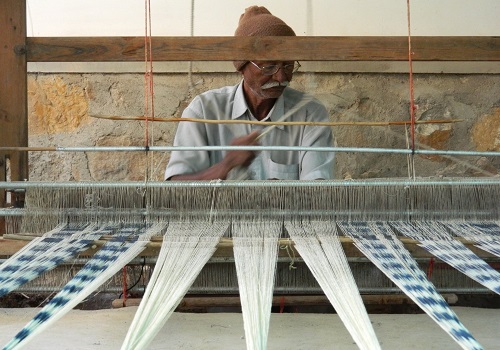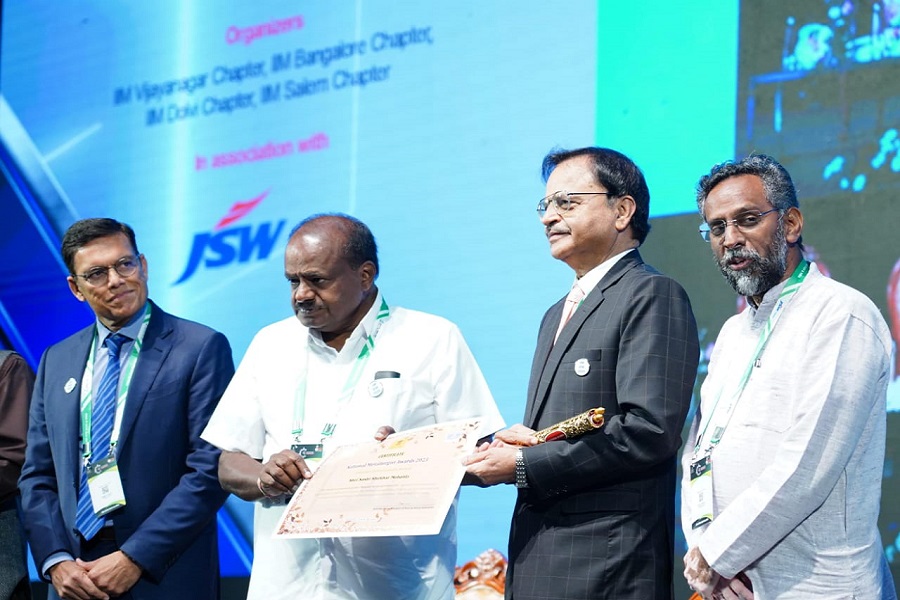Corporate India: On a Steady Course Amid Challenges? - CareEdge Ratings

Follow us Now on Telegram ! Get daily 10 - 12 important updates on Business, Finance and Investment. Join our Telegram Channel
CareEdge Ratings' credit ratio, which measures the ratio of upgrades to downgrades, continued to witness normalisation at 1.67 in H1FY24 in line with our expectations, moderating from 2.72 in H2FY23 and 3.74 in H1FY23. The ratio is now slightly higher than its 10-year average of 1.54. During H1FY24, CareEdge Ratings upgraded the ratings of 217 entities and downgraded the ratings of 130 entities. The credit ratio of the Below Investment Grade (BIG) portfolio, plunging down from 2.22 in H2FY23 to 1.18 in H1FY24, pulled down the overall credit ratio. While the credit ratio for the Investment Grade (IG) companies also saw a moderation from 2.99 in H2FY23 to 1.98 in H1FY24, it remained strong, indicating that the investment-grade portfolio has exhibited higher resilience.
Despite facing global challenges such as China's slow economic recovery and the consequent demand-supply gap, interest rate hikes, volatility in commodity prices and geopolitical uncertainties, India's economy has exhibited resilience and remained steady. This resilience is evidenced by consistent performance in key high-frequency economic indicators, including robust Goods & Services Tax (GST) collections, steady Electronic Way (E-way) bill generation, a resilient Services Purchasing Managers Index (PMI), and sustained growth in retail credit, all signalling healthy consumer demand.
Sachin Gupta, Executive Director and Chief Rating Officer at CareEdge Ratings, remarked, “During H1FY24, the credit ratio within CareEdge Ratings' portfolio has stabilised as anticipated, despite the global challenges and lingering uncertainties within the financial systems, which have been dampening global growth. The Indian economy has demonstrated resilience, with GDP registering a robust growth rate of 7.8% in Q1 FY24, up from 6.1% in the previous quarter. This was supported by a favourable base effect, strong growth in the services sector, and continued momentum in manufacturing and construction. However, it is our expectation that GDP growth will moderate in the forthcoming quarters as we witness a base normalisation.”
“In H1FY24, CareEdge Ratings’ credit ratio for the manufacturing and services sector moderated to 1.38, from 2.69 in H2FY23. Weak global demand leading to declining exports, has started affecting the export-oriented sectors. Despite this, upgrades outnumbered downgrades, mainly in the investment-grade category, particularly in sectors like auto, iron & steel, real estate, hospitality, healthcare, and logistics services. The downgrades were primarily observed in small and mid-sized entities with weaker credit profiles in chemicals, textiles, API/bulk drugs, and agro-based sectors, many of which are export-oriented. However, the sector's credit quality is expected to remain stable due to sustained domestic demand, the China+1 strategy and healthy balance sheets," said Ranjan Sharma, Senior Director, CareEdge Ratings (Corporate Ratings).
In the infrastructure sector, the credit ratio continues to remain strong at 2.21 in H1FY24, though moderating from 3.10 in H2FY23. The transport infrastructure segment contributed significantly, followed by the power sector. The construction sector exhibited a mixed performance. The key drivers of upgrades were project commissioning in roads Hybrid Annuity Model (HAM) segment and solar power generation space, as well as refinancing at improved financing terms. Rajashree Murkute, Senior Director at CareEdge Ratings (Infrastructure Ratings), emphasised that, “The transportation sector’s outlook remains optimistic due to a robust asset monetisation pipeline of HAM projects, expected recovery in EPC margins and a resurgence in traffic. Notable thrust towards sustainable energy sources amid rising power demand shall continue to augur well for incremental Renewable Energy (RE) capacities as well as monetisation of commissioned assets with strong counterparties.”
The credit ratio for the BFSI (Banking, Financial Services, and Insurance) sector strengthened from 1.91 in H2FY23 to 4.20 in H1FY24. Non-Banking Financial Companies (NBFCs) expanded their operations, achieving improved profitability and bolstered capitalization through fresh equity mobilization. Banking players also witnessed an improvement in credit ratios during this period, driven by higher Net Interest Margins (NIM), a more favourable interest rate environment, enhanced asset quality, and stronger capitalization metrics. Sanjay Agarwal, Senior Director at CareEdge Ratings (BFSI Ratings), noted that, “While banking sector profitability may experience a slight moderation in FY24, Non-Performing Assets (NPA) have reached a historic low of 0.9% in Q1FY24. With continued improvement in asset quality, Public Sector Banks are narrowing the gap with their Private Sector counterparts, and the asset quality is expected to further improve in the coming quarters. Moreover, mid-sized NBFCs are anticipated to maintain profitability through operational expenditure (opex) optimization, lower credit costs, and relatively limited increase in borrowing costs. The sector's outlook is expected to remain stable.”
In summary, despite the challenges facing the global economy, CareEdge Ratings believes that Corporate India has demonstrated resilience, with the credit ratio expected to remain range-bound. This resilience is underpinned by sustained growth in domestic demand, deleveraged balance sheets, the China+1 strategy, and the government's focus on infrastructure spending. Looking ahead, key monitorables for credit risk include resurfacing food inflation concerns, weather-related uncertainties, volatile crude oil prices, and geopolitical risks.
Above views are of the author and not of the website kindly read disclaimer






















